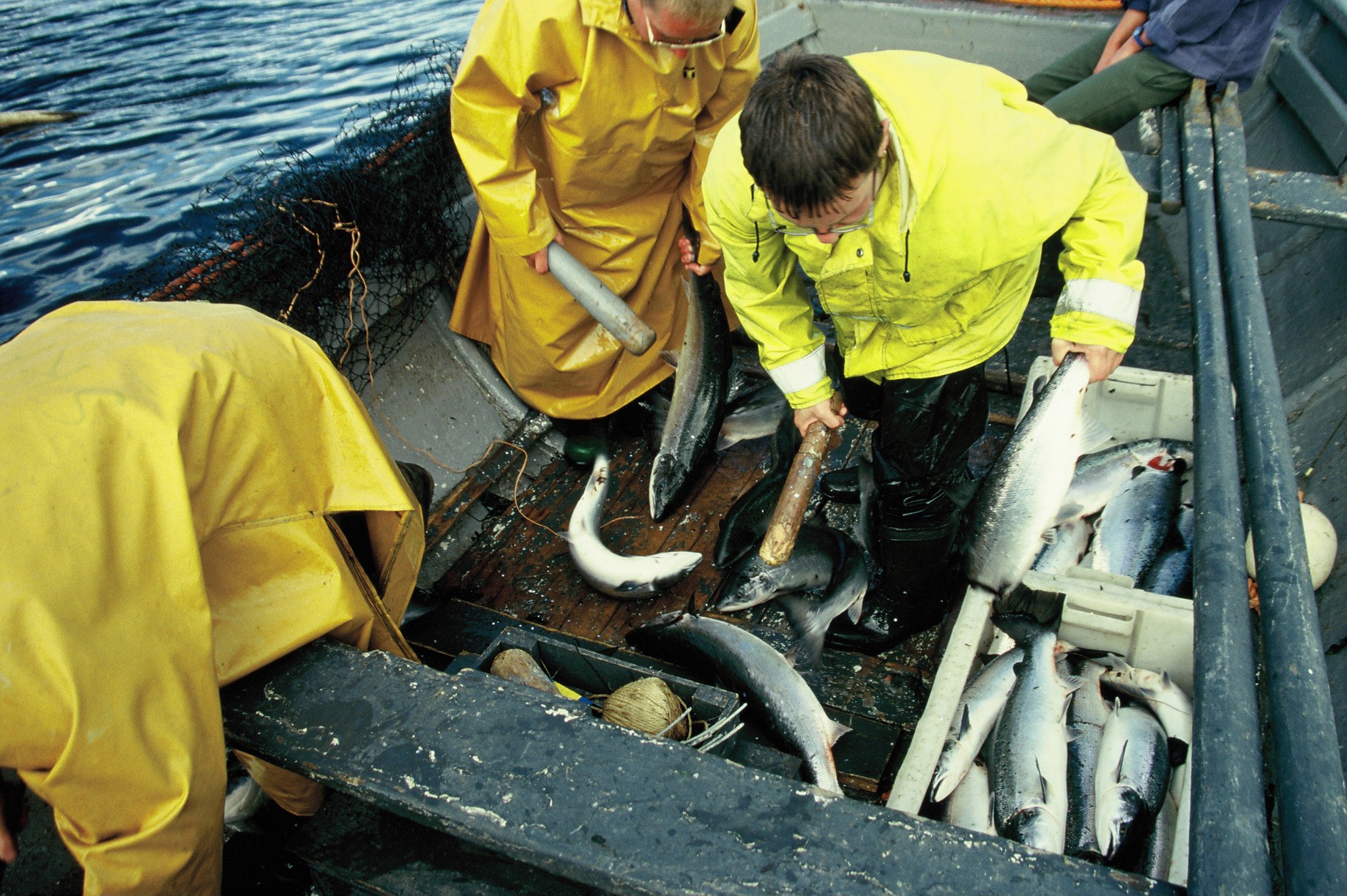
IT CAN hardly have come as much surprise to Scotland’s First Minister Alex Salmond to find a letter postmarked ‘Faroes’ on his desk this week. He might reasonably have been anticipating it since June 2008. That was when the Greenland and Faroese authorities first targeted Scotland – along with Norway – for a lamentable lack of action on coastal salmon netting.
Now in the wake of the Scottish Government’s bizarre approval for an EU grant to improve facilities at an Angus-based salmon and sea trout netting operation, Salmond and his rural affairs minister Richard Lochhead, find themselves in a real pickle.
The Faroese, in a strongly worded letter to the First Minister, are threatening to resume the marine netting of salmon which winter in the seas around their islands. If implemented, it could quickly unravel the inter-government accord reached in the early 1990s after lengthy lobbying by North Atlantic Salmon Conservation Organisation (NASCO) and backed with heroic fund-raising by Icelandic millionaire Orri Vigfussen’s North Atlantic Salmon Fund.
Under the NASCO agreement, to which Scotland is a signatory, the Faroes and Greeland fishermen agreed to halt drift netting at sea for salmon in exchange for financial compensation from NASF and reciprocal action by Atlantic seabord nations in halting coastal netting operations.
The Faroe Salmon Fishing Vessel Owners’ Association in its letter to Salmond, expresses “extreme disappointment” about the Scotland’s position. Association chairman, Niels Jacob Nielsen, and vice-chairman, Poul Martin-Rasmussen write:
“It seems that the Scottish politicians have lobbied for and successfully obtained an EU grant of £100,000 to maintain and enhance the destructive commercial salmon fishing activities in the Montrose basin. How on earth can this be possible or justified?
“We are driven to ask whether the Scottish authorities have ever done anything meaningful to enhance the salmon stocks and rebuild the sustainability of Scottish salmon. The answer must be a resounding ‘NO’!
We would warn you that we are no longer sure that the Faroes will be prepared to continue its salmon conservation efforts but the matter is in your hands. Unless you wish to be remembered as the man who stood idly by as a great Scottish resource was ruined we urge you to help stop the netting of wild salmon in Scottish waters before it is too late.”
The EU grant to Usan Fisheries of Montrose, whose nets capture salmon destined for rivers like the Dee, Don, Tay and both north and south Esk, it seems is the last straw for the Faroese who have watched for years while Scotland has failed to take effective action on coastal netting. Around 50 netting stations remain round UK coasts from traditional coble and haaf nets, to much larger fixed bag and jumper nets such as those of Usan. In 2006, 30% of all salmon captured in Scottish waters came from netting stations.
The netsmen backed by centuries of tradition and with heritable rights to their fisheries, argue that the withdrawal of coastal netting has not resulted in either a significant nor lasting increase in numbers of salmon in the rivers. But faced with salmon breeding populations in serious decline, conservationists – including anglers – say migrating fish must be given every opportunity to return and spawn and are demanding that netting stations are closed.
In 2009 Norway imposed rigorous new constraints on sea netting and combined this with stricter catch-and-release controls aimed at increasing the breeding populations of game fish.
Lochhead’s strategy was to set up a working group to devise a robust plan for dealing with the seemingly intractable netting issue. It comprised all interested parties and not surprisingly in May this year failed to reach a consensus after 20 months of deliberations. There is still no sign of ministers taking decisive action.
Earlier this year, Paul Knight, chief executive of the Salmon & Trout Association warned that Scotland risked becoming “the pariah of the international salmon world buy its attitude to managing wild fish stocks.”
This latest threat from the Faroese means the Scottish Government cannot fail to dither for much longer without incurring the wrath of its Atlantic neighbours and putting at risk its reputation as a genuine contributor to the conservation of one of nature’s most iconic species.
Related stories:
Why coastal netting seems destined to survive
Why it’s your turn to play politics with salmon
‘Sword of Damocles’ over future of wild salmon
Scotland’s salmon: a 21st century biography
NASF chief attacks SNP salmon policy